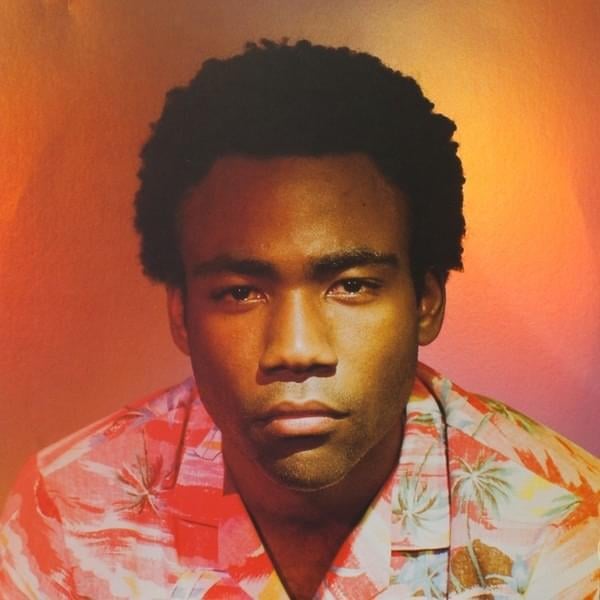Donald Glover, also known by his stage name Childish Gambino, released his polarizing sophomore album “Because the Internet” 10 years ago today.
Glover’s musical journey with Childish Gambino started back in 2008 with the release of various mixtapes, followed by his first studio album “Camp” in November of 2011.
Glover’s career in show business really started during his studies at New York University, honing his performance skills in the internet sketch comedy group Derrick Comedy.
He then continued his career in comedy writing for the award-winning sitcom “30 Rock,” followed by an on-screen role as Troy Barnes on the popular sitcom “Community.”
His role on “Community” alongside well-established comedy faces Joel McHale and Chevy Chase ultimately brought the California native into the spotlight.
Get The Daily Illini in your inbox!
“Community” and “30 Rock” demonstrated to the public that Glover was a multi-talented creative mind, excelling in the world of acting, stand-up comedy and screenwriting. Prior to the release of “Because the Internet,” the actor had yet to prove himself as a musician but was already established as a presence in the media.
Glover gained notoriety in large part due to the internet. He put his name out in the world through YouTube with Derrick Comedy and developed a large following as one of the pioneers of X, formerly known as Twitter.
Being one of the first true products of the internet, Glover was met with skepticism from the online community when he started getting into music.
“Because the Internet” goes beyond just an album. In the project, Glover created a world of art with a 25-minute short film, a 75-page screenplay, social media, public assembly in parks, live performances and an app. He spoke to Fuse News about his thought process back in 2013.
“I don’t want to do albums,” Glover said. “Especially now, if you’re gonna put out a body of work, it should be an experience … I want to make worlds and stories that people can live in for years.”
While aspects of this universe like the short film “Clapping for the Wrong Reasons” and the screenplay were not entirely organized, thematic works, it made it clear that Glover was equipped with an expansive imagination if nothing else.
“Because the Internet” and its universe are at the intersection of Glover’s many talents and his mental state at the time of the project’s release.
Glover had a busy life in the early 2010s, spending a lot of his time touring across America for his music while also balancing his acting career on “Community.”
Despite his packed schedule, he remained active across social media while often updating his website and being a common presence in talk shows.
That all changed in late 2012 when Glover vanished from the media. This was met with confusion, even prompting a Time Magazine article on the subject.
With 10 years of hindsight and greater context of the situation, it’s now known that Glover was going through an existential crisis after a tough stretch of seeing close friends pass away alongside a breakup with his girlfriend, whom he intended to marry at the time.
In the summer of 2013, Glover announced that he would be reducing his role on “Community” without much clarification. Months later, he broke his silence on social media, posting handwritten notes to Instagram about his internal fears and why he left the show. More significantly, Glover wrote about his personal struggles, saying he felt “sick” and “helpless.”
These letters, written on Residence Inn sticky notes, had fans concerned for Glover’s well-being at the time.
Although October of 2013 was the first time the media was enlightened on Glover’s struggles, it seemed as though the artist was pondering questions of existentialism for a while leading up to his Instagram post.
Glover’s creative world in “Because the Internet” seems to be informed by feelings of loneliness, deep fear, existentialism and the toxicity of the internet.
Deciding to act upon his feelings, Glover rented out a mansion in Los Angeles and invited friends and creators to come live with him there for much of 2013.
Glover made a strict set of rules for the mansion, which he designated “The Temple.” The actor required guests to maintain no connection to the internet. The house served as an asylum for himself to work on his mental health while creating art about his feelings.
The short film “Clapping for the Wrong Reasons,” released on YouTube in July of 2013, was the first published work of “The Temple.”
Initially released as a 50-second “internet version” followed by the full 25-minute director’s cut, the film consisted of Glover’s character, The Boy, going through everyday moments throughout his life of luxury alongside friends. Many were left confused by its spontaneity and composition.
The short film appeared to have two main messages. The first message is that the internet loves to take things out of context, as the short internet version of the film took clips from the director’s cut and uncontextualized them. The second message, of course, highlighted Glover’s existential crisis.
Flying Lotus, a rapper and producer who appears as one of The Boy’s friends in the film, sums it up best in a line during one of the last scenes of the film.
“Sometimes you just can’t explain why things happen,” Lotus says. “They just do.”
Deemed “strangely bizarre” by Vice and met with confusion on social media platforms, the short film was just the beginning. Two months later, Glover released “Because the Internet” as an album and screenplay.
The 75-page screenplay is all over the place, similar to the short film. It doesn’t seem to have a cohesive or concrete story, but subtle messages are there.
In “3005,” the album’s lead single, Glover touches on topics of loneliness and existentialism.
The chorus can be misleading to some; without looking into it, it seems like a love song. Instead, these lyrics are actually about Glover’s fear of being alone.
“No matter what you say or what you do/ when I’m alone, I’d rather be with you/ f— these other n—–, I’ll be right by your side, ’Til 3005, hol’ up,” Glover sings on the track.
In his second verse in the track, he displays a grim paradigm on the world with lyrics like “nobody’s got it figured out/ So, therefore, I’ve lost all hope of a happy ending.”
The verse also touches on similar topics to his handwritten letters on Instagram, saying he’s bothered by how much he cares about what other people think.
With a catchy hook and bouncy synths in the background, “3005” is Glover’s second-most-streamed song of all time on Spotify.
“Because the Internet” has been written off by some critics for being directionless, incomplete and meaningless.
Yet, having the full context of Glover’s mental state, it seems like that’s the whole point. Meaninglessness and emptiness are exactly what Glover was going through at the time — he made creative art that reflected that.
At its core, “Because the Internet” touches on deeper questions of human existence as opposed to issues of the internet. Glover hints that the internet can make existing problems worse and often encourages people to be inauthentic. The title can also be derived from the fact that Glover rose to fame due to his presence on the internet.
During the project’s rollout process, Glover often hinted at something called “Roscoe’s wetsuit.” It appeared in the album’s promotional art and on Glover’s social media accounts. Fans frequently talked about the meaning behind it online.
Yet, after the release of the album and screenplay, it seemed to be that “Roscoe’s wetsuit” was just a random prop in the screenplay’s plot with no relevance to the story.
“Roscoe’s wetsuit” represents the album’s message in a special way. It seemed to be something that had some great purpose, but it turned out to be insignificant. This is parallel to Glover’s view on life at the time he created the screenplay and album.
By no means is the record perfect — Glover’s singing and lyrics have rough patches and the flow of the record is quite inconsistent — but all in all, critics were too harsh when reviewing “Because the Internet.”
Despite that, “Because the Internet” is a beautiful, creative mess. Glover provided audiences with an immersive experience in which one can spend hours. The more time one spends in the universe, the more one will get out of it.
“Because the Internet” created conversation online, positive and negative. Yet, Glover’s overarching message prompts us to think: How genuine are people online, and does it even matter?







